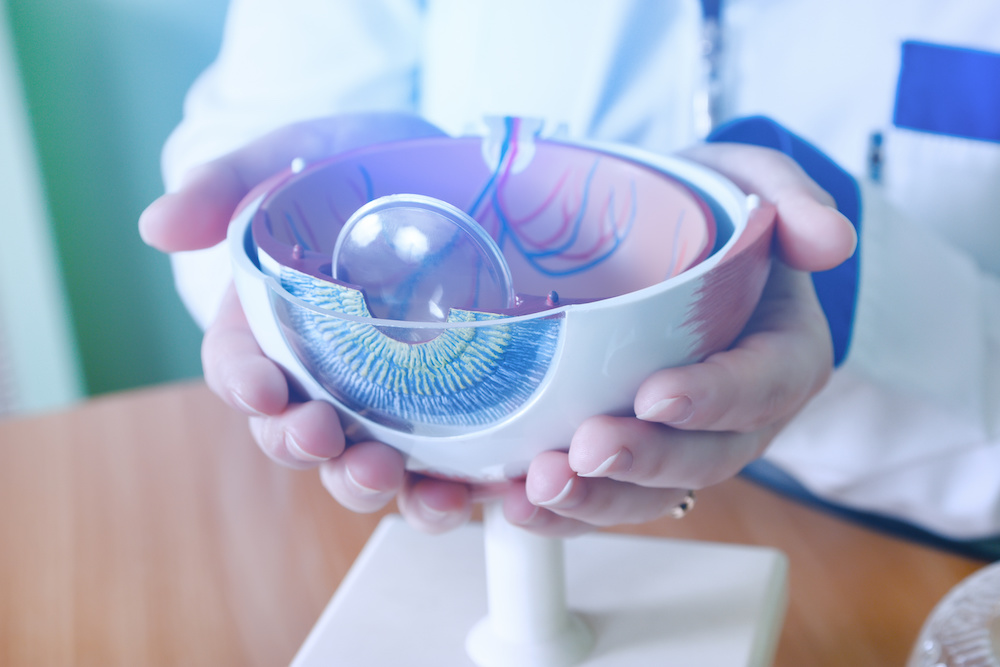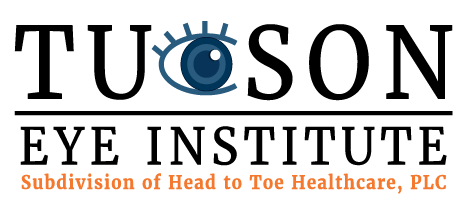Eye Exams
When was the last time you got your eyes checked? If it’s been over a year, you’re past due!
Regardless of your age, health status, or history of vision problems (or lack thereof), regular comprehensive eye exams are an important part of maintaining overall health and well–being.

Do I Need an Eye Exam if I Don’t Wear Glasses?
Yes!
Even if you don’t think you need corrective lenses (or your old ones are still working fine), regular eye exams can help you identify early signs of progressive eye disease and treat them before they result in severe vision loss (or even blindness).
Think about how much you depend on your eyes for nearly every single activity you perform in a day. What would life be like if you suddenly lost the ability to see, or to see clearly?
Your eyes are an irreplaceable resource, yet millions of Americans lose their vision due to conditions like glaucoma, cataracts, macular degeneration, and diabetes—conditions that might have been prevented or halted if detected early.
What Happens During Your Eye Exam?
Your eye exam will help us determine the general health of your eyes and visual acuity, including aspects like depth perception, visual field, color vision, eye movement, eye alignment, response to light, condition of the blood vessels and nerves, and more.
Components of a routine eye exam may include the following:
- A brief review of your medical history and any existing or previous eye conditions or vision problems.
- Pupil dilation. It’s a lot easier to see into a room through an open door than through a keyhole! Dilating your pupils allows us the clearest possible view to the condition of your eyes.
- General inspection. This includes a close look at the front part of your eye (pupil, cornea, iris, lens) and the back (retina, optic nerve), eye structures, and surrounding structures (like eyelids) for any irregularities.
- Visual acuity test. We’ll test the sharpness of your vision, including with your current corrective lenses (if you have them).
- Refraction test. Testing how various lenses affect the focusing power of your eye will help us identify the proper prescription to compensate for nearsightedness, farsightedness, or astigmatism.
- Ocular motility test. How well do your eyes move? How quickly and smoothly can they follow a visual target? This exam allows us to identify problems such as strabismus.
- Peripheral vision test. How wide is your visual field? If your eyes are focused forward, how well do you recognize objects outside your direct line of sight?
- Intraocular pressure test. Checking the fluid pressure of your eye via a simple test is one of the most important screening tools we have for identifying glaucoma.
Because your pupils will be dilated, your eyes will be extra sensitive to light and your close-range vision may be impaired for approximately 4-6 hours. We can provide disposable sunglasses if you don’t have your own.
Depending on your medical history, family history, or our findings during the basic exam, we may recommend further testing at a later appointment. Examples include:
- Optical coherence tomography (OCT) scanning. This allows us to obtain high-resolution images of the retina and anterior segment of the eye. It is extremely useful in identifying and assessing conditions such as macular degeneration, glaucoma, and multiple sclerosis.
- DNA testing. If you have a family history of macular degeneration or certain other conditions, genetic testing may be advisable.
- Diabetic eye exam. If you have diabetes, we generally recommend retinal photography as part of the standard exam, with additional scanning necessary if we observe any bleeding or other problems. Diabetic patients should schedule checkups more regularly, generally 6 months to 1 year.
Is it Time to Get Your Eyes Checked?
Is it time for you to get your eyes checked? Give Tucson Eye Institute a call to set up your appointment. You can reach us at (520) 585-5717, or toll free at (888) 219-1982.
Contact Us
Office Hours:
Monday - Friday
8:00AM - 5:00PM
By Appointment Only:
First Saturday of the month from 8:00AM - 2:00PM
